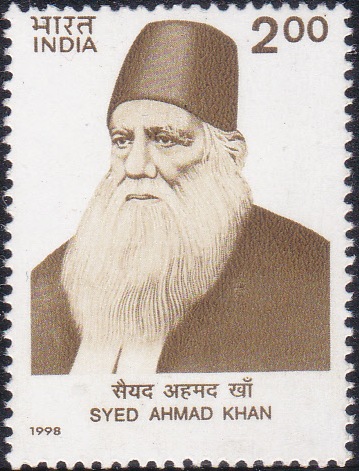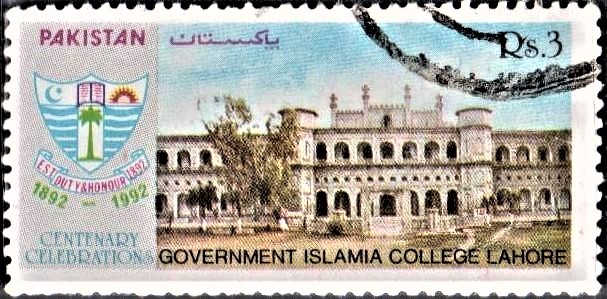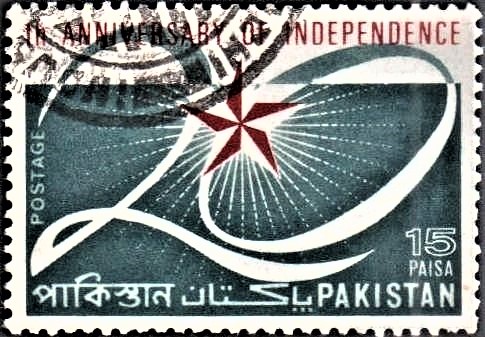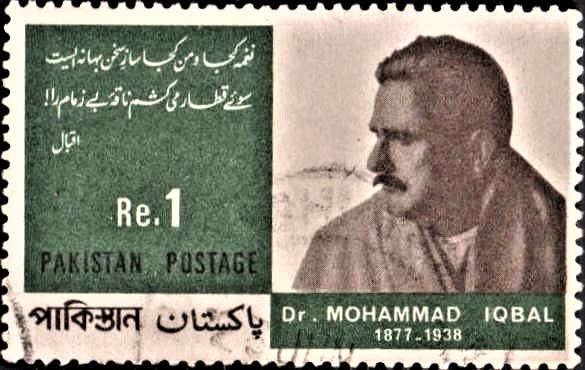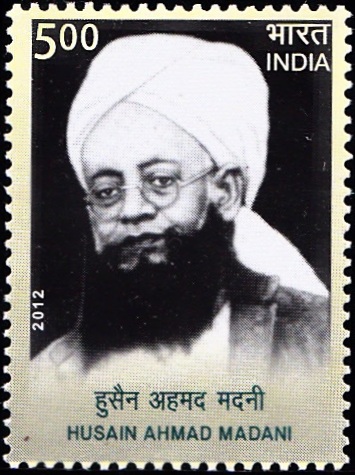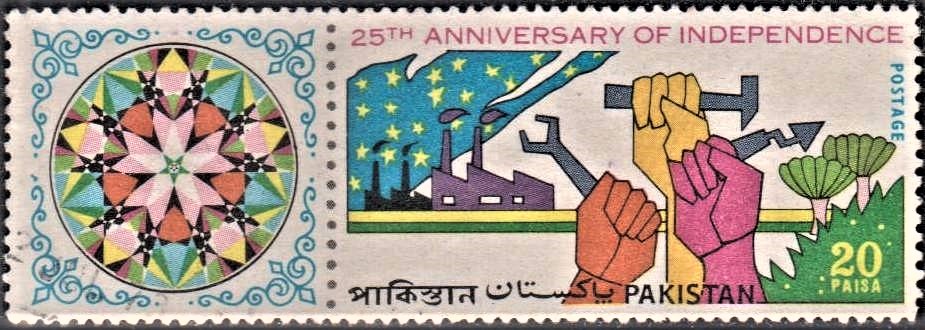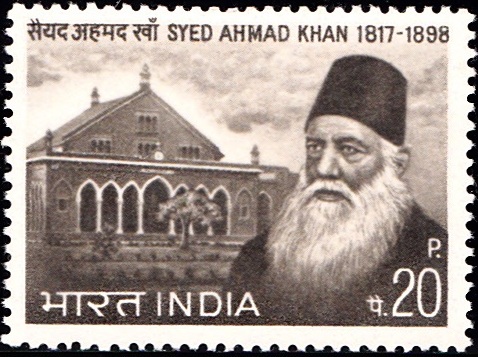
India on Syed Ahmad Khan 1973
A commemorative postage stamp on the Birth Anniversary of Sir Syed, an Indian Muslim pragmatist, Islamic reformist and philosopher :
Issued on Oct 17, 1973
Issued for : By issuing a stamp in memory of Syed Ahmad Khan, the P & T Department pays homage to a great Indian, social reformer and educationist of the 19th century, whose contribution to the building of modern India was remarkable in many respects.
Description of Design : The design of the stamp is horizontal and depicts the portrait of the personality.
Type : Stamp, Mint condition
Colour : Raw Sienna
Denomination : 20 Paise
Overall Size : 3.91 X 2.90 cms.
Printing Size : 3.56 X 2.54 cms.
Perforation : 13 x 13
Watermark : Printed on unwatermarked adhesive stamp paper
Number Printed : 10,00,000
Number per issue sheet : 35
Printing Process : Photogravure
Designed and Printed at : India Security Press
Name : Syed Ahmad bin Syed Muhammad Muttaqi
Born on Oct 17, 1817 at Delhi, India
Died on Mar 27, 1898 at Aligarh, Uttar Pradesh, India
About :
- Syed Ahmad Khan was one of the greatest Indians of the nineteenth century. In the history of India’s transition from medievalism to modernism, he stands out prominently as a dynamic force pitted against conservatism, superstition, inertia and ignorance.
- He was born in Delhi on October 17, 1817, and breathed his last in Aligarh on March 27, 1898. His life is a long story of struggle against the forces that stood in the way of India‘s progress. He was, in fact, one of the most eminent builders of modern India, He found in education the panacea to all ills – social, political and economic – of contemporary Indian society. He dedicated his life to the educational advancement of the Indians, particularly the Muslims who had refused to move with the times and had remained wedded to old modes of thought and behaviour. In 1863, he appealed to all people of India and exhorted them to apply all their energies to the improvement of the educational system of the country. During the same year, he established the Scientific Society for inculcating a scientific attitude of mind among the people and a few years later started a journal the Indian Institute Gazette for popularizing the aims of the Scientific Society.
- In 1875, Syed Ahmad Khan established the M.A.O. College at Aligarh and expressed the hope “that this college may expand into a university whose sons shall go forth throughout the length and breadth of the land to preach the gospel of free enquiry, of large hearted toleration and of pure morality”. Twenty two years after his deaths, his dream was realized and the M.A.O. College developed into the Aligarh Muslim University. “Sir Syed” writes Maulana Azad, “had established in Aligarh not only a college, but an intellectual and cultural centre in tune with the progressive spirit of the times. The centre of this circle was Sir Syed himself and he attracted around him some of the best intellects of the day”. In fact, he laid the foundation of what may be called the Aligarh School of Urdu literature. Nearly all important Urdu writers of the late 19th and early 20th centuries belong to this school.
- In the sphere of social reform, Syed Ahmad Khan played a very important role in extricating the people from the meshes of medievalism and superstition. He started a journal, Tahzib–ul Akhlaq, also called Mohammadan Social Reformer, with the purpose of creating an awareness of the problems of modern life. This journal laid the foundation of journalism in Urdu.
- Syed Ahmad Khan made valuable contribution in different branches of literature, religion, ethics, philosophy and history. His work on the archaeology of Delhi, known as The Asar–us Sanadid laid the foundation of archaeological studies of Delhi. He edited a number of historical works, like the Tarikh–i Firuz Shahi of Barani, Ain–i Akbari of Abul Fazl and the Memoirs of Jahangir. Syed Ahmad Khan was interested in the history of religious thought and wrote a number of books on religious themes and initiated comparative religious studies. As a religious thinker, he stood for rationalism and for fresh interpretation of religion in the light of the changing conditions of society. In this field again he laid the foundation of a new school of thought (Ilm–i Kalam), which brought with it a revaluation of the traditional social ethics of the Muslim community.


